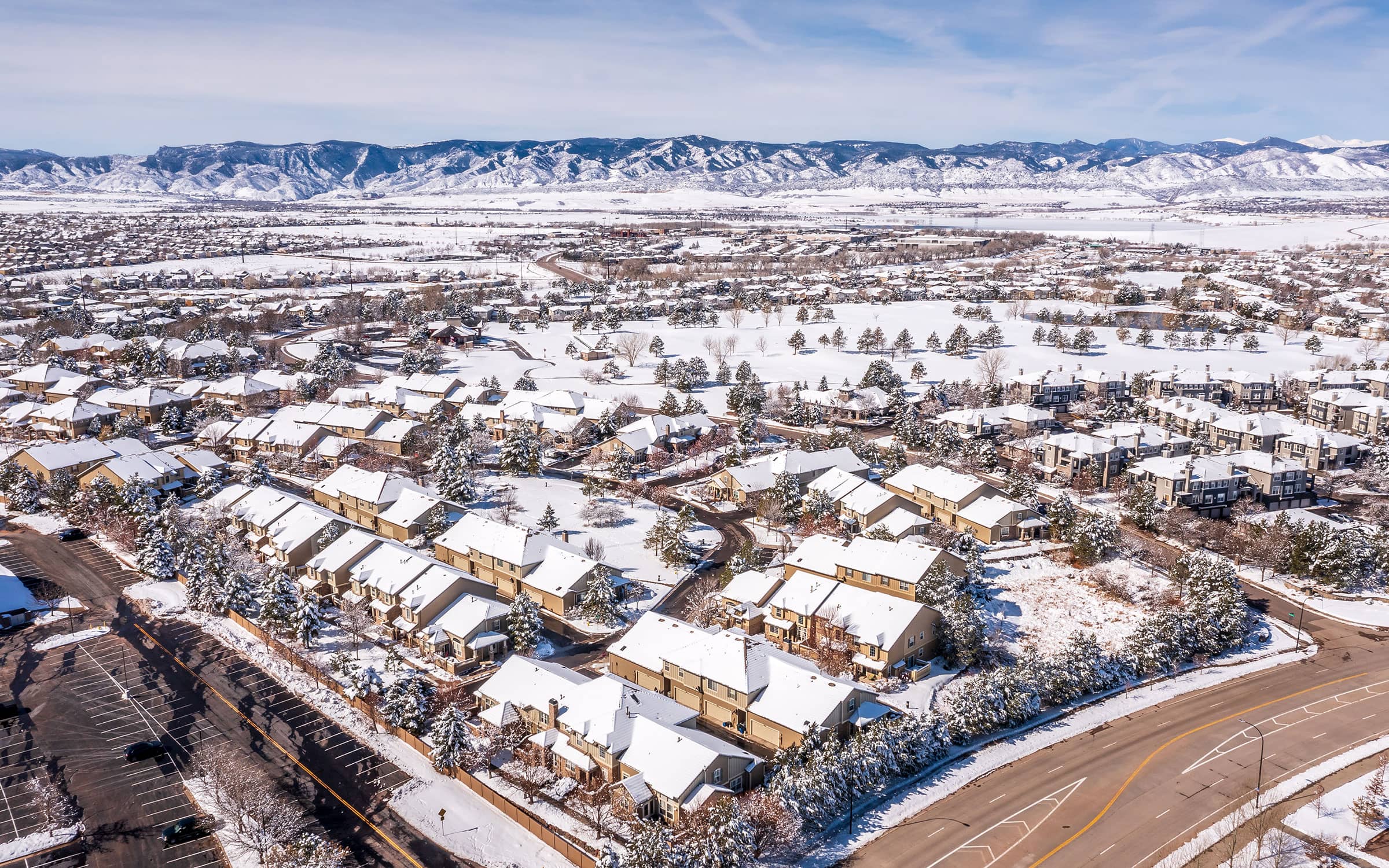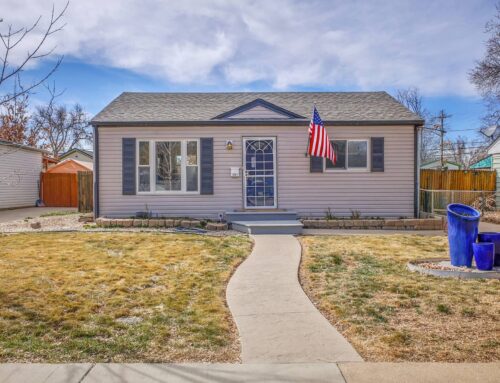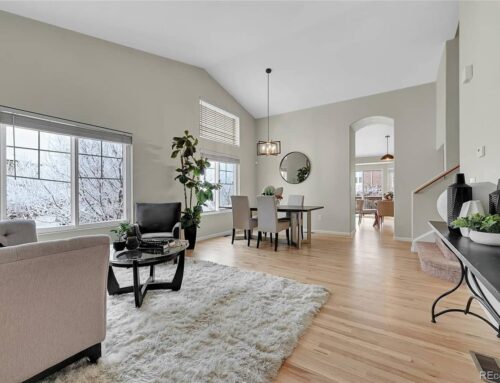
Colorado Housing Market Gains Momentum: Sellers Return to Market
The Colorado housing market is picking up steam, with sellers reentering the market and creating a surge in activity. New listings across the state have seen significant increases, especially in the Denver metro area. Sales of single-family homes are on the rise, while the median sales price remains steady. Interest rates have not deterred buyers, leading to strong demand and potential price escalations. Various regions in Colorado offer unique opportunities for both buyers and sellers. The market is projected to continue its upward trajectory with intensified competition and sustained growth. In this article we’ll take a look at what’s happening in the Denver housing market as we enter the peak buying and selling season of 2024.
Key Takeaways
- Sellers are returning to the market due to increased demand and price escalations.
- Colorado’s housing market is experiencing a surge in seller activity.
- Market dynamics show a rise in new listings across various regions in Colorado.
- Seller confidence is growing amidst the competitive market environment.
- Anticipate increased seller participation and market competitiveness.
2024 Market Trends and Statistics
In just one month, new listings in the Denver metro area surged by almost 26%, indicating a significant uptick in housing market activity. Townhome/condo new listings also saw a similar increase of 27.2% month over month. Statewide, new single-family listings in Colorado rose by 18% in February, while townhome/condo listings statewide increased by 26% during the same period. Single-family home sales in Denver spiked by almost 40% from January to February, showcasing a robust demand in the market. Despite the surge in inventory, median sales pricing for single-family homes in the Denver metro area remained steady at $600,000 from January to February. Conversely, townhome/condo pricing in Denver experienced a 3.8% increase, reaching $415,000 in February. Statewide, the median price of a single-family home in Colorado rose by 2.6% to $558,900 in the past month, with townhome/condo median sales pricing statewide increasing by nearly 5% to $424,950. The stability in median sales pricing can be attributed to the persistent strong buyer demand, counterbalancing the rise in inventory levels.
Impact of Interest Rates
The stability in median sales pricing amidst rising inventory levels is partly attributed to the resilience of buyer demand in Denver, especially in the context of higher interest rates that have not deterred housing market activity. Despite the interest rate increases over the past few years, Denver buyers have continued to show significant interest in the housing market. This behavior suggests a growing acceptance of the new rate environment and a strong desire to secure properties. The competitive market dynamics have shifted, with buyers adapting to the changes and showing increased demand. As a result, the market is expected to witness further price escalations and reduced time on the market. Overall, the housing sector is projected to experience a surge in activity in the upcoming months between March and July, driven by persistent buyer interest, an influx of residents, and the adaptability of market participants to the evolving interest rate landscape.
Colorado Housing Market: Regional Overviews
With a notable 3-4% price increase and low inventory leading to multiple offers, the Aurora/Centennial market showcases a competitive real estate landscape. In Boulder County, listings have surged by 35% compared to the previous year, indicating a robust market. Colorado Springs experienced a pre-spring surge with a significant 9.9% increase in inventory, driving prices up by 3.8% year over year for all property types. The Pikes Peak Region is gearing up for a busy summer with an anticipated uptick in sold properties. These regional snapshots highlight the diverse dynamics within Colorado’s real estate market, each presenting unique opportunities and challenges for both buyers and sellers. As sellers return to the market and buyers navigate these varying conditions, the importance of a seasoned real estate agent becomes even more necessary.
National Housing Trends
Observing a significant decline in nationwide mortgage applications, February marked a period of 30-year lows in the housing market. “Housing starts” plummeting across the country, with building permits dropping by 1.5% monthly. Multifamily permits hit their lowest number since October 2020. Despite new homes being built, buyers are not showing up as expected. This trend indicates a potential mismatch between supply and demand in the national housing market. The decreased interest in mortgage applications and the sluggish housing starts suggest a cautious approach from potential homebuyers and developers. These indicators may reflect broader economic uncertainties or shifts in consumer confidence.
Regional Real Estate Market Reports
Colorado witnessed a remarkable 10% increase in new listings in Fremont County over the first two months of 2023. In Fort Collins, active listings surged by nearly 20% for both single-family detached homes and townhomes/condos. Glenwood Springs experienced a significant 35.9% increase in new listings of single-family homes compared to the previous year. Grand Junction saw pending sales rise by 17% from last year, indicating a strong market. Additionally, Pagosa Springs reported a substantial 45.5% increase in sold listings in February 2024, pointing towards strong real estate activity in the area. These regional real estate market reports reflect varying degrees of growth and activity, showcasing the dynamic nature of Colorado’s housing market. As sellers return to the market, these positive trends will likely contribute to the overall momentum and resilience of the state’s real estate sector, trickling into the Denver Metro and surrounding real estate markets.
Anticipating Future Market Trends
Anticipate a continued upward trajectory in Colorado’s housing market, especially in suburban neighborhoods like Aurora and Parker, CO. Expect prices to continue their upward trend, regardless of what interest rates do. The competitive dynamics are likely to intensify further, leading to quicker sales and potentially higher closing prices. As the market adjusts to the changing landscape, sellers may find themselves in a favorable position with increased opportunities to capitalize on the strong demand. This is evident, as The Storck Team is still getting their clients top-dollar and closing at numbers higher than the asking price. Overall, the future outlook for Colorado’s housing market points towards sustained growth and a dynamic environment where both buyers and sellers can benefit.
Conclusion
To sum up, the Colorado housing market is experiencing a surge in momentum, with sellers making a solid comeback. As new listings increase and sales activity remains robust, the market is buzzing with opportunity. Buyers are adapting to rising interest rates, while sellers capitalize on the strong demand. The delicate balance between supply and demand is reflected in steady median prices, setting the stage for an exciting chapter in Colorado real estate.







